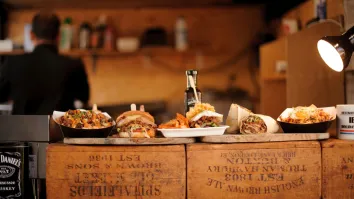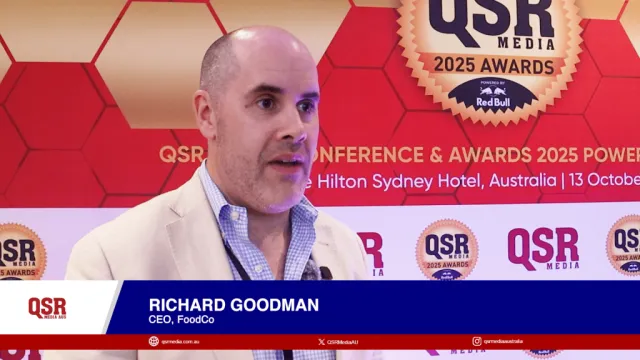
Educate, don’t over legislate: say KFC, QSRH, Sumo Salad & Pie Face
Representatives of major players in the industry say that the government should focus on educating people on how to make healthy choices instead of passing a lot of legislation onto the industry such as the recent NSW menu board legislation.
While many QSR’s are all for transparency and making the kj and nutritional information available to their patrons there is a feeling that the industry is over regulated. Speaking at a recent QSR Media event Tony Lowings, Managing Director of KFC Australia, commented that the government regulation issue is absolutely appropriate; however, the problem lies with its execution.
“I think the biggest difficulty is that the way that they execute it and the way that they bring it to life, in our environment, in our industry, is trying to use a sledgehammer to fix the problem,” he says. “The fact that they are approaching it by really trying to push QSR or fast food out of people’s considerations, as opposed to what we would be much more supportive of, which is education. Because I think that education is the fundamental issue in terms of getting people an ability to work and navigate through this landscape. So, educate people about what the best foods are. Educate people about how to make healthy choices. Manage that effectively, rather than just targeting a particular sector of the industry.”
Mark Lindsay, CEO of QSRH, stresses that one of the main problems is that consumers don’t understand the difference between kilojoules and calories.
According to Lindsay, “Consumers just don’t understand the difference between the two. And I think just by putting kilojoules up on the menu board, in a particular way, is not going to enlighten consumers on what is actually in the content of the food. And as an industry group, we’ve taken a lot of effort into looking at fat levels, sodium levels, salt levels, anything that we can do to reduce those inputs into our food.”
He adds that the consumers are mainly after taste, and the problem is that as you move to healthier options in food, you have to take away from taste.
“We know from experience, that every time the consumer comes in from the perception of a healthier option, nine times out of ten, they’re still going to buy their old favorite.” Lindsay says that the level of regulation that the industry has today is quite extensive, not only at federal level, but also at state level. “It has become so complex for small business owners, in their own right, to try to deal with this legislation. It’s extremely complex, it’s extremely costly, and ultimately, it’s a lot of inefficiency.”
Luke Baylis, the Managing Director of SumoSalad believes that when it comes to healthy eating, fundamentally taste and flavor can’t be comprised – after all if it doesn’t taste great, then no one will eat healthy food! “When it comes to legislation, displaying the KJ content is only one small piece of the total puzzle, it’s actually more misleading than anything, how many people actually understand KJs – they get calorie counting,” he says. “In addition, every person has got different health requirements, different dietary requirements. For some people, it’s about sugar, or sodium, or fat content. And to just isolate all of these in just one area in the menu panel, could actually do more harm than good.”
Ben Macpherson, the CMO of Pieface, also believes that it is an education issue. “I think that we’ve got an opportunity in Australia, where the market is not as advanced as some other markets, in terms of health, we’re in a slightly different era. Unfortunately, bad food is profitable business right now because the consumer demands it. If we could really focus our efforts on education, we’d do a lot more good than sort of trying to over-legislate the restaurant industry,” he said.

























